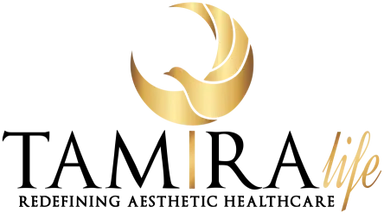
More information about selected concern
Breathing Difficulty
Breathing Difficulty
Assuming you were born with a deviated nasal septum, you probably won't know what it seems like to encounter inconvenience-free breathing. The condition appears to be adequately minor, however, it can bring side effects and hardship like signs of difficulty breathing that affect your complete body health. You may experience breathing difficulty at night or even breathing difficulty when lying down. So why is this? It's a condition happening when the divider between nasal entries slants aside. This makes one nostril bigger than the other. The smaller nostril can become obstructed, prompting decreased flow of air, troublesome breathing, headaches and a large group of other issues.
You may be born with a deviated septum or it may very well be the consequence of injury, like playing rough games or other injuries. Around 80% of the individuals have a deviated septum and don't have any idea about it.
A deviated septum happens when the flimsy divider (nasal septum) between your nasal entries is dislodged aside. In many individuals, the nasal septum is off the place - or deviated - making one nasal section look smaller. At the point when a deviated septum is extreme, it can hinder one side of the nose and diminish the airflow, causing trouble when breathing. The deviated septum’s exposure to the drying impact of airflow through the nose may now and then add to crusting or nosebleeds in specific individuals.
A nasal blockage or clog can happen from a deviated nasal septum, swelling of the tissues coating the nose, or both. Treatment of nasal hindrance might incorporate medical prescriptions to diminish the swelling. However, to address a deviated septum, you will definitely require a surgical procedure.
Symptoms
Most septal relocations bring about no side effects, and you may not even realize you have a deviated septum. However, a few septal disfigurements may cause the following symptoms and signs of difficulty breathing:
- Hindrance in one or two nostrils: This blockage can make it hard to inhale through one or both nostrils. You might see this more when you have a cold or sensitivities that can make your nasal entries swell and tight
- Bleeding from the nose: The outer layer of your nasal septum might become dry, elevating the chances of bleeding from the nose
- Facial agony: A potential reason for facial pain that occurs on one side could be a seriously deviated septum in which surfaces inside the nose get into contact and cause pressure
- Breathing noisily during rest: A deviated septum or swelling of tissues inside the nose can be one of the many explanations behind breathing difficulty at night and very noisy breathing even during rest
- Consciousness of the nasal cycle: The nose switches back and forth between being deterred on one side and afterward changes to being obstructed on the other. This is known as the nasal cycle. Monitoring the nasal cycle isn't normal and can show nasal block
- Inclination for sleeping on a specific side: Certain individuals have breathing difficulty when lying down and might like to rest on a specific side to improve breathing through the nose around evening time in the event that one nasal entry is blocked
- Sinusitis (aggravation of the sinuses)
- Sleep apnea
- Loud snoring
- Dryness in one nostril
Causes
So what are the causes of breathing difficulty? A deviated septum happens when the nasal septum - the thin divider that isolates your right and left nasal sections - is dislodged aside. A deviated septum can be brought about by two primary reasons:
- A condition present right from childbirth: Sometimes, a deviated septum happens when the fetus gets created in the uterus and is obvious even during birth.
- Injury or trauma to the nose: A deviated septum can likewise be the consequence of a traumatic physical incident that made the nasal septum move out of its shape and place.
In babies, such a physical injury might happen during labor. In kids and grown-ups, a wide exhibit of mishaps might prompt a nose injury and deviated septum. Injury to the nose most usually happens during physical games, extreme rough activities like wrestling, or collisions. The process of aging might also influence the shape of the nasal, deteriorating a deviated septum after some time. Irritation and swelling of the sinus or nasal cavities due to infectious reasons can additionally limit the passage of the nasal and result in nasal obstruction.
Treatment options
In most cases, treatment isn't required. For a seriously deviated septum with serious signs of difficulty breathing, a surgical procedure is the ideal treatment choice. Because of the expenses, chances, or different variables, certain individuals with a septum that is deviated, decide not to go through a surgical procedure. Other treatment choices are accessible but they don't resolve a septum that is deviated, yet they can reduce the side effects that go with it. Some of the following treatment options I love the most ideal choice to overcome breathing difficulty at night and breathing difficulty when lying down;




